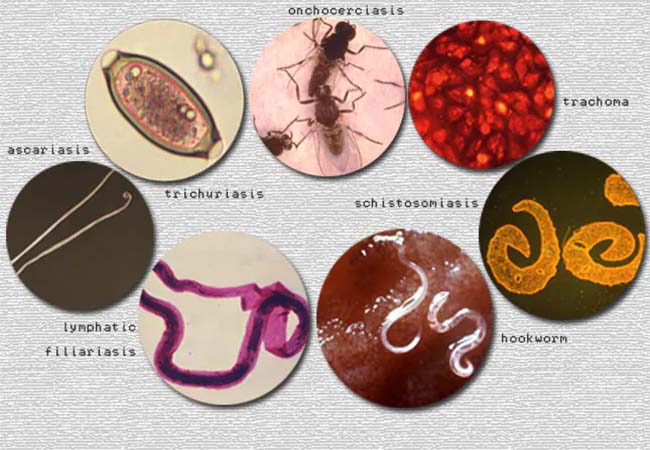The Minister of Health, Dr. Osagie Ehanire, says Nigeria accounts for about 25 per cent of all Neglected Tropical Diseases in Africa.
Dr. Ehanire stated this on Monday in Abuja in commemoration of World NTDs Day.
WNTDD is marked every January 30 and this year’s theme is tagged “Act now. Act together. Invest in neglected tropical diseases.”
WNTDD is set aside to create awareness of the devastating impact of NTDs on the poorest populations around the world.
NTDs are a diverse group of 20 conditions that are mainly prevalent in tropical areas, where they affect more than one billion people who live in impoverished communities.
NTDs are caused by a variety of pathogens including viruses, bacteria, parasites, fungi, and toxins. These diseases cause devastating health, social and economic consequences.
According to the World Health Organisation, there are more than 15 NTDs in Nigeria. Some of the NTDs include elephantiasis, soil-transmitted helminthiasis, river blindness, trachoma, schistosomiasis, snakebites, leishmaniasis, Human African Trypanosomiasis, mycetoma, rabies, leprosy, yaws, fascioliasis, scabies, Noma.
The minister said Nigeria is particularly interested in NTDs because they are a group of communicable and non-communicable diseases occurring mostly in isolated areas of developing countries with poor sanitation and nutritional status, unsafe water supply, substandard living conditions, and low levels of education.
“Though sufferers may be many, the diseases are still “neglected” because they are almost absent from the global health agenda and are associated with stigma and social exclusion. Neglecting the population also helps perpetuate the cycle of poverty and limited access to professional opportunities.
“NTDs include diseases like Lymphatic Filariasis, Onchocerciasis, Schistosomiasis, Soil Transmitted Helminthes, Buruli Ulcers, Leishmaniasis, Dengue, Guinea Worm Disease, Trachoma, Leprosy, Rabies, Noma, Yaws, Mycetoma. Snakebites are included because they are also prevalent in poor communities, especially as occupational hazards to farmers and herders. Noma is being considered for inclusion since 2021.
“Most NTDs are of public health importance, as they impact negatively on socio-economic development and affect an estimated one billion people worldwide, mostly Tropical areas of low-income in Africa, Asia, and Latin America.
“Nigeria has about 25 per cent of all NTDs in Africa, with millions of persons at risk: Lymphatic Filariasis-122 million, Onchocerciasis- 33 million, Schistosomiasis- 20.8 million, Soil-Transmitted Helminths- 29.4 million, Trachoma- 5.3 million and Human African Trypanosomiasis- 6.5 million people respectively.”
Osagie noted that addressing social determinants of health like Water, Sanitation, and Hygiene inadequacies are essential for NTDs’ control and elimination.
“The significance of World NTDs Day is to renew global and national awareness of the magnitude of NTDs and also present opportunities to highlight progress made, challenges met, policy direction, and advocate support for prevention, control, and elimination efforts.
“NTDs also re-energizes the momentum to end the suffering from these 20 diseases, caused by a variety of pathogens, viruses, bacteria, parasites, fungi, and toxins,” he added.
The UN body, however, noted that although as many as 179 countries and territories reported at least one case of NTDs in 2021, 16 countries accounted for 80 per cent of the global NTD burden.
“Around 1.65 billion people were estimated to require treatment for at least one NTD, globally,” the organisation said.
The WHO Director-General, Dr. Tedros Ghebreyesus said “Around the world, millions of people have been liberated from the burden of neglected tropical diseases, which keep people trapped in cycles of poverty and stigma.
“But as this progress report shows, we still have a lot of work to do. The good news is, we have the tools and the know-how not just to save lives and prevent suffering, but to free entire communities and countries of these diseases. It’s time to act now, act together, and invest in NTDs.”


